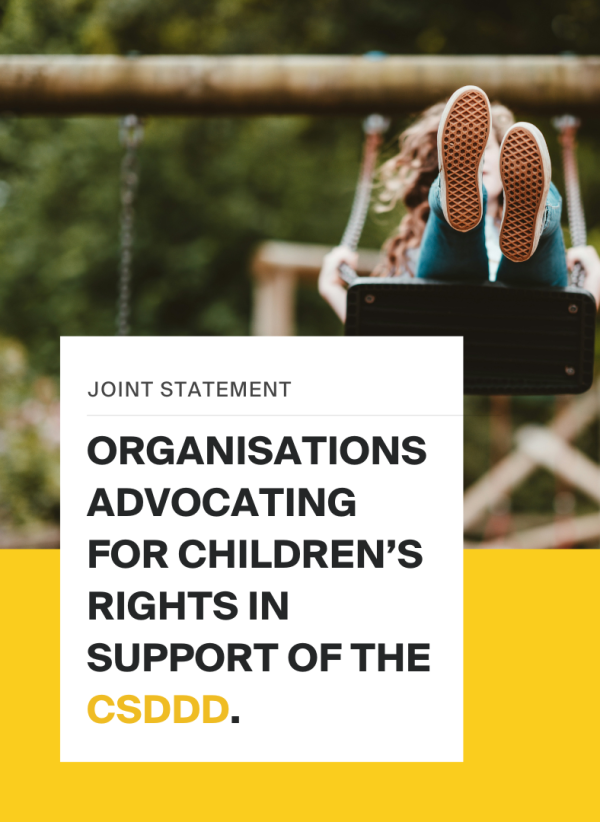This website uses cookies so that we can provide you with the best user experience possible. Cookie information is stored in your browser and performs functions such as recognising you when you return to our website and helping our team to understand which sections of the website you find most interesting and useful.

The first day of the negotiations on the third revised draft treaty on business and human rights kicked off today in Geneva at the UN Intergovernmental Working Group with an appeal by the High Commissioner for Human Rights, Michelle Bachelet, for “all to engage constructively in the process”.
This round of negotiations follows the 10-year anniversary of the UN Guiding Principles on Business & Human Rights, the first global standard for preventing and addressing the risk of adverse impacts on human rights linked to business activity. Both Bachelet and the re-elected Chairperson Rapporteur, Emilio Izquierdo, offered words in remembrance of John Ruggie whose authoritative voice helped achieve broad acceptance that corporations need to be held accountable: “honor his memory by making his vision a reality”.
The third draft of the treaty has been welcomed by most participating states. It now includes a reference to ILO Convention 190 in the preamble; a clearer definition of ‘victim’; a corporate obligation to prevent; and a state duty to provide access to remedy and justice. It also explicitly applies to all commercial activity, including transnational. Special reference is made to the need to overcome obstacles faced by women and other vulnerable groups. While some fundamental aspects still require scrutiny and input, the meaningful participation of member states will be the key to its success.
US strikes unhelpful tone
After seven years of largely ignoring the UN intergovernmental process, the United States is attending this year’s session to call on member states to participate in an as yet undefined alternative process.
It struck a contradictory tone, arguing that it “wants to collaborate to find a path forward” but is also taking a step back to explore alternative instruments, binding and non-binding. Given its opposition to the current text, the delegation proposed a framework agreement as a way forward.
This approach by the US shows a blatant disregard for its fellow UN member states, the people affected by corporate human rights abuses, and civil society organisations that have been engaging in the process of developing a legally binding instrument. The US position “shows a deep disrespect for the large group of largely Global South nations that have worked for seven years to strengthen the international human rights system, against steep opposition from the U.S. and some other global north delegations,” a civil society statement signed by ECCJ reads.
EU way off the mark
The participation of the EU as a block stuck to its familiar unconstructive script: while it “believes in the potential of an international process,” the draft treaty must also be “implementable”.
Although the delegation noted that corporate abuses remain rampant globally – and committed to strong legislative action with its draft law on sustainable corporate governance expected later this year – the EU missed another opportunity to use its leverage to build support for the process.
Instead, it insisted on the lack of consensus in the room, failing to acknowledge the momentum of a large committed group of UN member states and civil society to the current process. The EU’s invitation to explore more “consensus-based” ideas echoed the position of the US and that of other dissenters. The EU’s concerns seemingly lie in the level of detail in the revised draft and its prescriptive character, particularly with regards to criminal and civil liability, applicable law, and jurisdiction – raising questions about its own upcoming legislative proposal.
Corporate capture or coincidence?
Given the striking similarities between the interventions of the US and the International Chamber of Commerce, one of the most powerful corporate lobby groups in the US, concerns corporate capture of the UN negotiations are being raised.
Similarly, the International Organization of Employers considers that the treaty “is not an appropriate tool to address the challenges at stake”. Together with BusinessEurope, one of Brussels’ biggest and most influential lobby groups, it proposed to replace the current draft with a new framework convention, which “has been discussed on the sidelines of this negotiation”.
When the US argued that for an instrument to be successful, it needs “broad acceptance by all stakeholders,” which stakeholders did it have in mind exactly?
Others remain resolute
A large group of Global South member states, including South Africa, Cuba, Venezuela, Namibia, Paraguay, Bolivia, Ecuador, India and Palestine, continued to throw their weight behind the process. Their message was loud and clear: the current text is a good basis for negotiation. The Network of National Human Rights Institutions also adopted this position.
Member of European Parliament Miguel Urban Crespo reminded the delegates that binding mechanisms are urgently needed to put human rights before corporate profits, not the other way around.
Hoy en Naciones Unidas hemos denunciado que la ausencia de normas internacionales claras y vinculantes sobre respeto de Derechos Humanos y justicia para las víctimas alimenta la impunidad y los abusos del poder corporativo global#BindingTreaty #StopCorporateImpunity pic.twitter.com/jF75OqxWug
— Miguel Urbán Crespo (@MiguelUrban) October 25, 2021
A Member of Brazilian parliament added that corporate impunity is rampant in cases across Latin America and the Global South. She recalled the impunity enjoyed by the companies behind the Mariana and Brumadinho dam disasters for over six years and 1000 days, respectively. A binding treaty is necessary, but its objective must be clear: to regulate corporations that are currently evading their responsibilities.
Preamble negotiations
Article-by-article negotiations began with the draft preamble. Proposals to improve it included a more progressive definition of non-discrimination, as well as a point about the role of human rights defenders and a reference to the Rio Declaration.
Talks continued with Palestine championing the inclusion of references to humanitarian law, which was opposed by China, while Iran, Palestine and Cuba suggested adding a reference to self-determination and sovereign equality.
Other proposals were made: Panama advocated for the inclusion of the rights of the child and Cameroon underlined the transnational character of corporations and other business enterprises.
The EU took the floor only on two occasions. It asked a clarification question and opposed the suggestion made by Egypt, China, and Iran to remove some references to the role of human rights defenders. As the EU still does not have a negotiating mandate, its opposition was not recorded. France later stepped in to reiterate the EU’s point, so that it could be taken into account.












